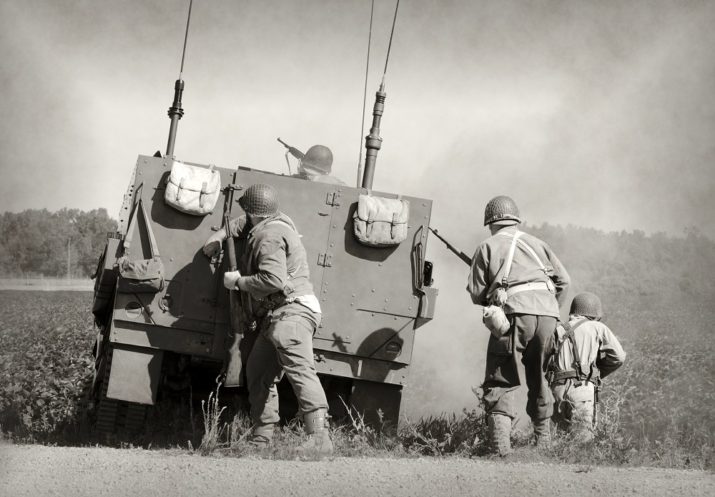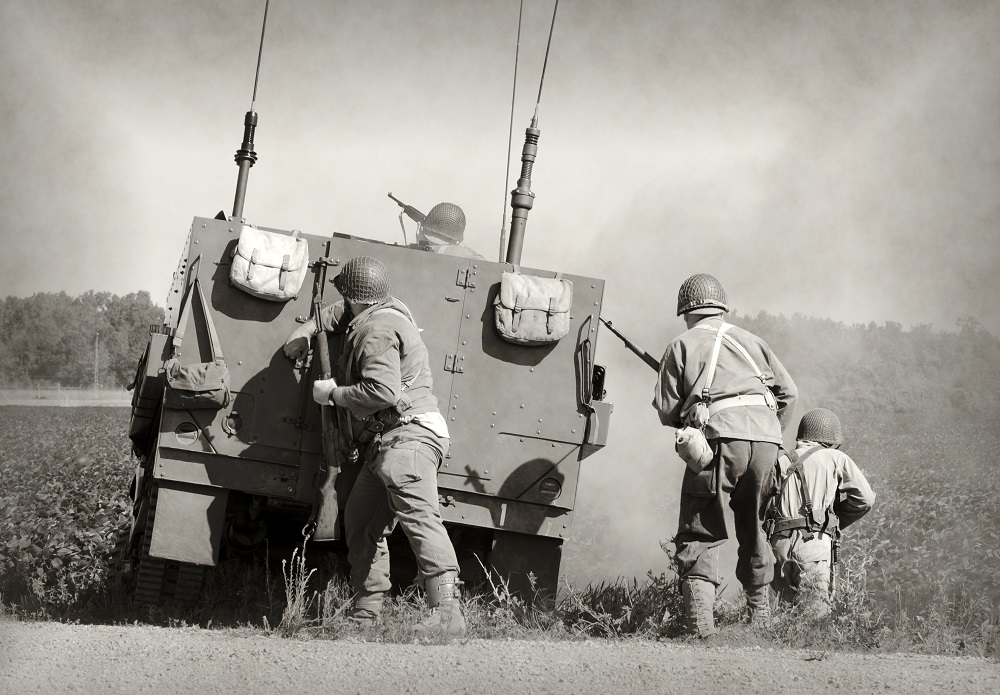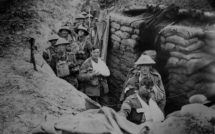
Remembering the Netherlands during World War II: War Diaries and the Role of the Historian in Collective Memory

On May 8, 1945, three days after the liberation from Nazi Germany, the State Institute for War Documentation (Rijksinstituut voor Oorlogsdocumentatie; RIOD) was founded in the Netherlands. Led by historian, Loe de Jong, RIOD was tasked by the government to write the official history of the Dutch kingdom during World War II. To help facilitate this, one of the first actions of the Institute was to create a special archive for war diaries. Posters, flyers, and targeted letters, as well as a weekly radio broadcast by Loe de Jong were used to raise awareness of the archive among those members of the population who had kept or knew someone who had kept a diary during the war years. Response was significant, and with more than 1,700 documents in the archive, RIOD, which was renamed in 2010 as the Institute for War, Holocaust and Genocide Studies (NIOD), became home to the largest collection of war diaries in the Netherlands. Both the decision of a research institute to collect personal diaries and the large response from the Dutch population can be explained by studying the relationship between archives, history, and memory.
The early establishment of this institute (the first of its kind in Europe) reflected recognition of an important cultural development within Dutch society towards information and history, where the existing Dutch predilection for the past had intensified because some people believed that their national history and cultural heritage had been threatened by the German occupational forces.[i] A fascination for Dutch nationality and history, in combination with a desire for news updates about the war, had resulted in a widespread public interest in documenting the contemporary world in which they lived. Many people began to keep diaries and scrapbooks because they believed they were living through extraordinary times and that events they witnessed would become of historical significance in the future.
Public attitudes were also mirrored by those in the government and academia. During the war, several ministers of parliament and historians had met, in secret, to discuss the possibility of creating a new archival institute for war documentation, which would protect source material from getting lost or being destroyed. Prior to the end of the war, the exiled government actually broadcast a speech via an illegal radio station in London to all Dutch citizens, asking them to send their diaries to the “to-be-founded institute for war documentation” as soon as the war was over.[ii] The focus on diaries reflected the story of the war and garnered insight about what the Dutch nation had experienced. Moreover, diaries were regarded as social time-capsules, containing factual information that was often difficult to gather from other sources, and which could support a wide range of possible historical research projects, including the production of the official history of the occupied Netherlands.
As already noted, RIOD has become the custodian of the largest archive of second world war diaries in the Netherlands. Employees of the diary section believed that reading diaries allowed later generations to experience what the war generation had been through to inform historical interpretation by those who write (and rewrite) history. From the outset, these diaries were recognized as a collection of emotions, ideas, thoughts, and experiences that could be used in conjunction with historical sources and more factual accounts of what had happened in the occupied Netherlands. This would, in theory, give great weight and a sense of reality to the official historical discourse.
However, it is important to note that not all diaries that were sent to RIOD were accepted into the archive. Initially, there was an active drive to collect between 1945 and 1955 with two-hundred diaries obtained during its first year alone. Dolf Cohen, head of RIOD’s diary section, argued that personal experiences and reactions to events of both the elite and ordinary people should be stored. The employees of the institute were mainly interested in diaries that revealed vivid descriptions of daily life, personal reflections on witnessed events, or accounts of how the occupation impacted the life of the author. Interestingly, diaries written by (former) members of the Nationaal-Socialistische Beweging (NSB; the Dutch national socialist political party) or supporters of National Socialism were also accepted into the archive because Cohen aimed to gather diverse material in order to inform later generations on the different sentiments, motivations, emotions, and opinions of all Dutch citizens during World War II, including collaborators and Nazi sympathisers. However, diaries written by NSB members were, because of their sensitive, personal nature, often not sent in by the authors themselves, but obtained through the Bijzonder Gerechtshof, the Dutch court that was established to try citizens of high treason and war crimes.
Whereas the employees of the institute were mainly interested in diaries that revealed vivid descriptions of daily life, many diaries that were sent to the institute consisted of dry summaries of facts and general information, or scrapbooks containing newspaper clippings.
As more and more diaries were received, the selection criteria grew stricter and eventually most scrapbooks were sent back to the authors. The decisions made by RIOD staff regarding the war diary collection were not always grounded in a strict acquisition policy and diaries that could be of importance to historians nowadays might have been rejected. Sometimes this was for practical reasons; for example, the requirement to return some diaries to their authors after they had been studied meant that perceived value-based judgements informed which diaries would be archived because the post-war paper shortage and high photocopying costs prevented all diaries being included.
Moreover, the value or lack of value of diaries was directly measured against RIOD’s research and history writing agenda. Diaries that were considered most important contained facts and names of people that were hard to gather from official sources, detailed descriptions of daily life, information on local or regional developments, or a psychological and emotional response to the occupation. The last category was deemed especially important by employees who scanned the diaries and decided whether they should be copied or not. Gradually during the first post-war decade, diaries that did not fit these categories were sent back to the authors and eventually one tenth of the total amount of received diaries was not included in the collection.
The role of RIOD and its staff in distributing these memory narratives should not be overlooked. Remembering and writing about the past is influenced by conscious and unconscious selection and interpretation. Archivists are key players in deciding which historical information is kept, and which is discarded. To help balance this and reduce biases there are strict rules for archivists. The influence of archives in creating and distributing collective memory has been subject to critical investigations, mostly conducted within the academic discipline of archival studies. Many claim that archivists traditionally highlighted the neutral and objective qualities of the archive. Despite attempts to ensure that RIOD contained a full spectrum of diary opinion, such as the policy promoted by Cohen, the reality was that RIOD was first and foremost a research institute, not primarily an archive. It was granted a governmental task to produce the official history of the Dutch kingdom during World War II. Its employees were mostly historians and academics and there were few, if any, trained archivists. It is therefore impossible to guarantee the impartiality of RIOD’s diary archive.
During World War II, people wrote their experiences down in diaries and these were later used in historical studies and published in books and newspaper articles. In this sense, personal accounts were shared, becoming more than personal memories by directly informing part of a national post-war collective memory on the Nazi occupation of the Netherlands. By engaging with first-hand accounts, experiences and thoughts of individuals from varied backgrounds during World War II, people are able to acquire memories that are not their own. Importantly, the relationship that generations after World War II bear to the personal, collective, and cultural memories of the event is partially influenced by the particular selection of those war diaries that have been included in public history and commemorative narratives.
Although reading diaries is not the same as directly accessing and sharing personal memories, diaries could be described as “mediated memories,” which allow memories to be linked between individuals. José van Dijck argues that mediated memories are devices by which people seek to establish their own identities in the face of their larger surroundings. They are not fixed representations of personal memory because memory is never fixed and always constantly negotiated within the cultural frames of society.[iii] Another interesting term in this context is “post-memory,” defined by Marianne Hirsch, who argues that trauma can be inherited on an “inter-, intra- and transgenerational” level.[iv]
Historians have considered different aspects of the past to be important in different times and places, and this context is important in investigating how, and by whom, memories are shaped. The present influences the past and we construct and reconstruct it based on what we find important in the present. People sometimes claim to “remember” what others have done to “them” (the group they identify with), even though they were not alive to witness those events. In this case, after reading war diaries and history books that have drawn on the events and descriptions from those diaries, it can be assumed that there would be a stronger identification with the Dutch who lived through the occupation and believe that as a people or nation they share a common history. People who own the memories are the people who lived through them, who have a first-hand recollection of the events (in this case the people who wrote the war diaries). But when they die and subsequent generations remember their memories, the concept of ownership and authorship changes. People then do not become the author or owner of their memories but they inherit them. Interestingly, this “post-generation” acknowledges that their “memories” are not lived memories but distant from the actual events.
The creation of RIOD’s war diary archive was influenced by the desire to keep the past alive and impacted by the chaotic conditions of a country emerging from a war and occupation. It is important to note that a lack of impartiality does not necessary negate the value of the diary collection or the relevance it holds with regard to informing contemporary Dutch collective memory; rather it emphasises the importance of understanding the role of the historian in shaping collective memory and that memory and forgetting are inextricably bound up with each other by virtue of the mediated way in which archives are managed.
Sacha van Leeuwen is a PhD candidate in Sociology at the University of Glasgow, studying cyber commemorations of British fallen soldiers of UK military interventions in Iraq and Afghanistan. During her Bachelors and Masters in History, she focused on the interaction between memory, history and trauma.
Photo: Soldiers in World War II era battle, Ivan Cholakov | Shutterstock
References:
[i] Annemieke van Bockxmeer, De oorlog verzameld: het ontstaan van de collectie van het NIOD (Amsterdam 2014).
[ii] Jaap Cohen, Het bewaren van de oorlog. De roerige beginperiode van het Rijksinstituut voor Oorlogsdocumentatie, 1945 – 1960 (Amsterdam 2007).
[iii] José van Dijck, ‘Memory matters in the digital age’, Configurations, Vol. 12, No. 3 (2004) 349 – 373.
[iv] Marianne Hirsch, The Generation of Postmemory (New York 2008).




